Product Updates
Skej is now available on Slack!
If your team lives in Slack, now Skej does too. Skej acts like another member of your team, ready to jump into any conversation as soon as it turns to scheduling.
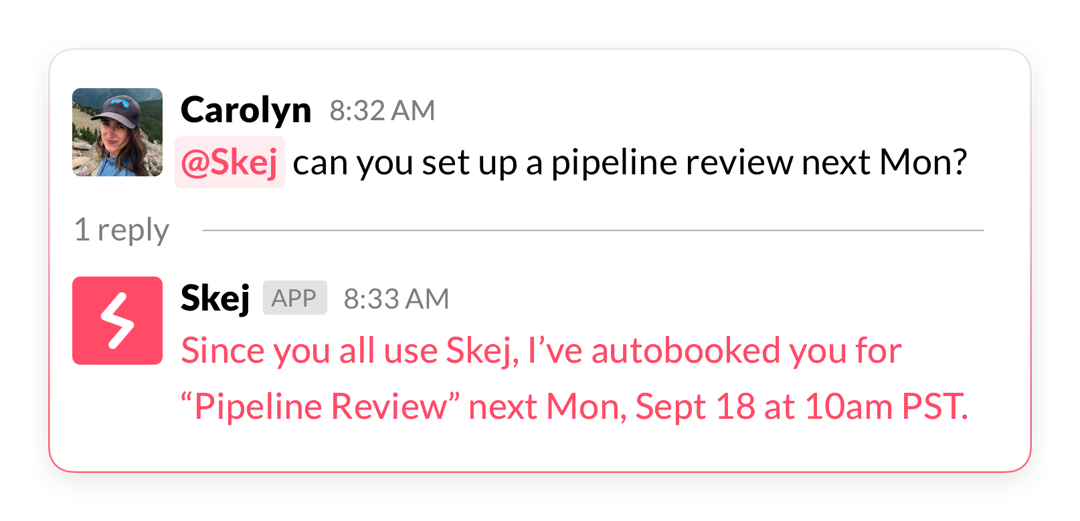
Key Features:
- 🏠 Internal Meetings - Instantly autobook meetings with connected team members
- 👯♀️ Find Mutual Availability - Works across multiple time zones and calendars
- 💬 Slide into Skej's DMs - Chat with Skej just like any co-worker
- 📆 Reminders and Daily Agenda - Get notifications and manage meetings directly in Slack
Want to try it? Sign up for Skej today, and get started in seconds!
Skej 2.0 Feature Highlight #3: Multiple Requests
Skej can now handle multiple requests from a single message - schedule, reschedule, or cancel multiple meetings at once.
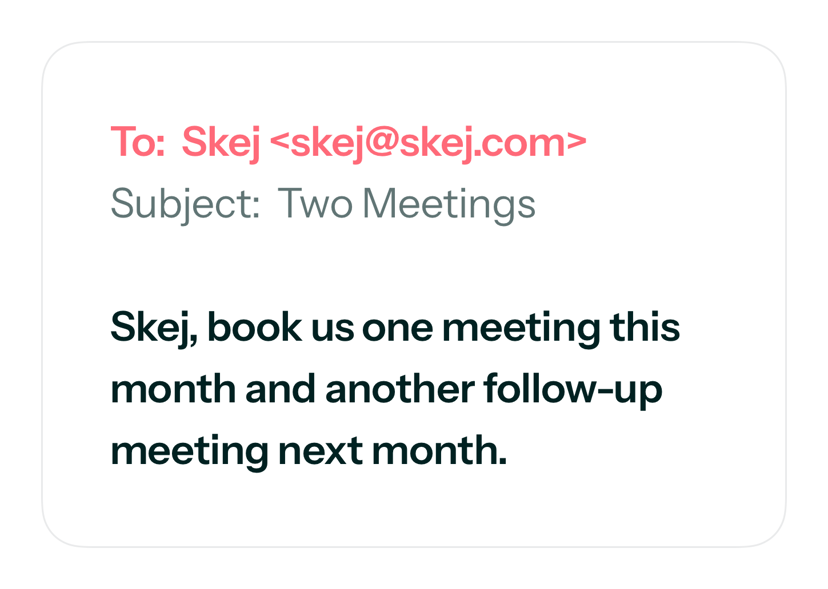
Key Features:
- 💪 Multiple Requests - Handle multiple scheduling tasks in one message
- 🎣 'Clear my afternoon, I'm going fishing' - Complex multi-meeting operations now possible
- ⚠️ Beta Feature - Make requests detailed and clear for best results
Skej 2.0 Feature Highlight #2: Screenshots of Events
Paste a screenshot and ask Skej to add it to your calendar. Perfect for invitations, concerts, school events, and more.
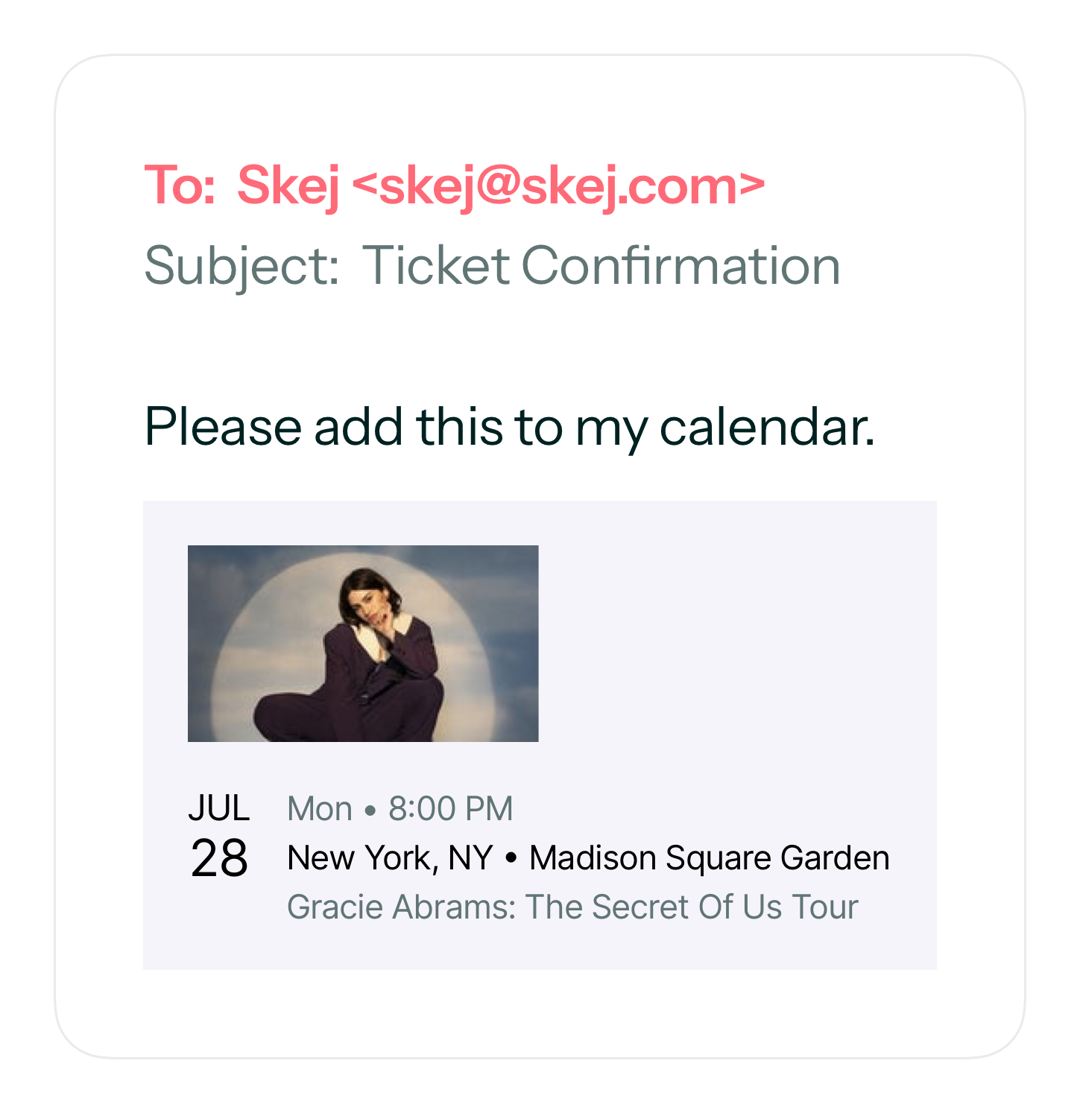
Key Features:
- 📸 Screenshots of Events - Paste images to automatically add events to calendar
- 📆 'Add This to My Calendar' - Works with both images and text
- 🫵 'Just book it!' - Override availability checking when needed
Skej 2.0 Feature Highlight #1: Multiple Emails
You can now use multiple emails in a single Skej account, including both email aliases and entirely separate email inboxes.
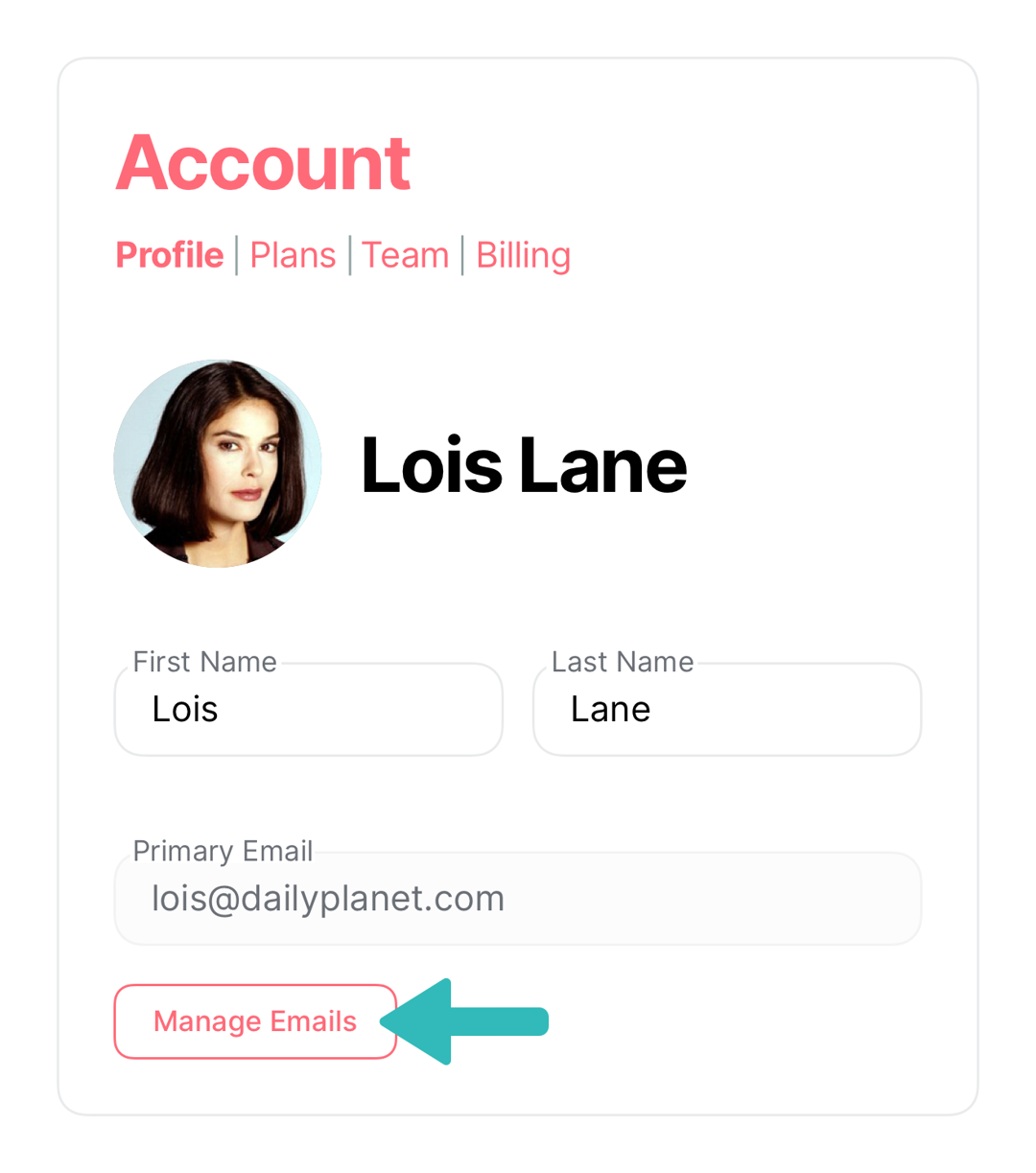
Key Features:
- 👯 Multiple emails are now supported - Use email aliases and separate inboxes
- 🔧 Setup through Profile page 'Manage Emails' section
- 📆 Assign different calendars to each email address
Skej 2.0: Brand New Skej
Our most significant update ever - a brand new version of Skej, rebuilt from the ground up after 9 months of development.
Key Features:
- ✅ More Reliable - No more dead-ends, stronger comprehension, 100+ languages
- ✅ More Intelligent - Human-like responses, complex scenarios, natural EA handling
- ✅ New Features - Screenshots, multiple emails, reminders, and much more
Buffers and Daily Meeting Limits
Control your meeting schedule with buffer time between meetings and daily meeting limits.
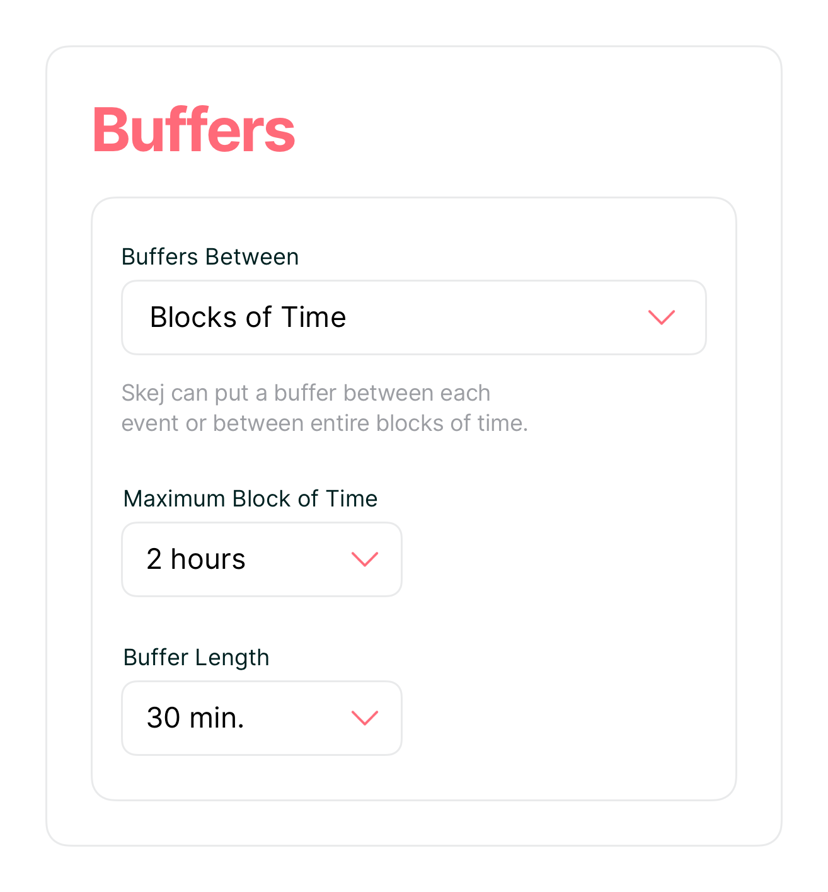
Key Features:
- 🚦 Buffers - Set buffer time between blocks of meetings or every meeting
- 🛑 Daily Meeting Limits - Cap total daily meeting time
- 💪 Overrides - Exception handling for specific availability needs
Free/Busy Calendar Support and 30-Day Scheduling
Better calendar integration with free/busy status recognition and improved scheduling timeframes.
Key Features:
- 📅 Free/Busy recognition - Events marked as 'free' are now treated as available
- 📆 30-day scheduling window - More reasonable timeframe for finding meetings
- 🐛 Bug fixes - Calendly links and better clarification requests
Team Accounts and Autobook
Team collaboration features with automatic booking for connected team members.
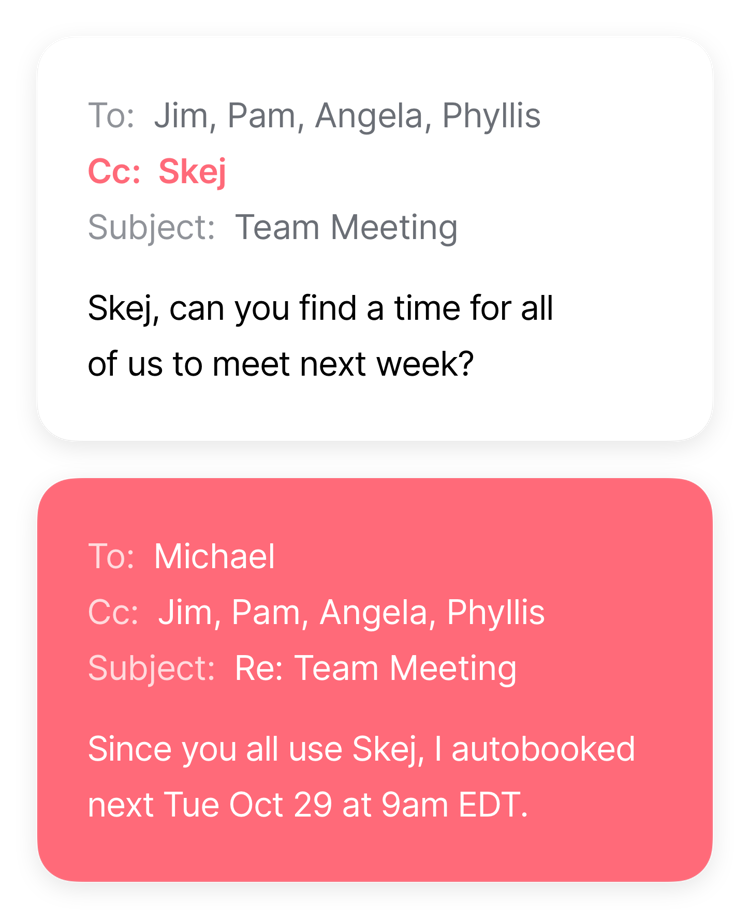
Key Features:
- ⚡️ Autobook with Your Team - Automatic mutual availability booking
- 🤝 Team Accounts - Add team members through Dashboard
- 🤵♂️ Admin Roles - Assign different access levels to team members
Daily Agenda and Meeting Reminders
Stay organized with daily agenda emails and meeting reminders.
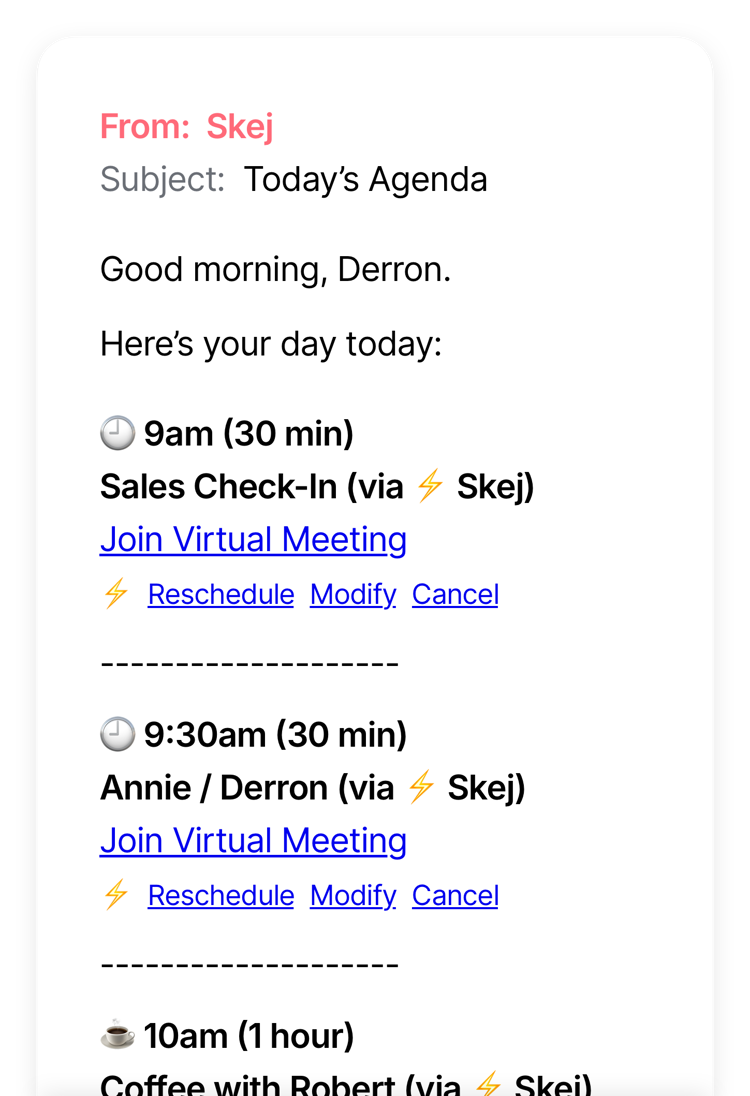
Key Features:
- 📅 Daily Agenda - Morning email with your day's schedule
- ⏰ Meeting Reminders - 10 minutes before video calls, 30 minutes for in-person
- 🔗 Quick Actions - Modify, reschedule, or cancel directly from emails
Email Threading System
Smart email threading that understands when to reply privately vs. reply-all.
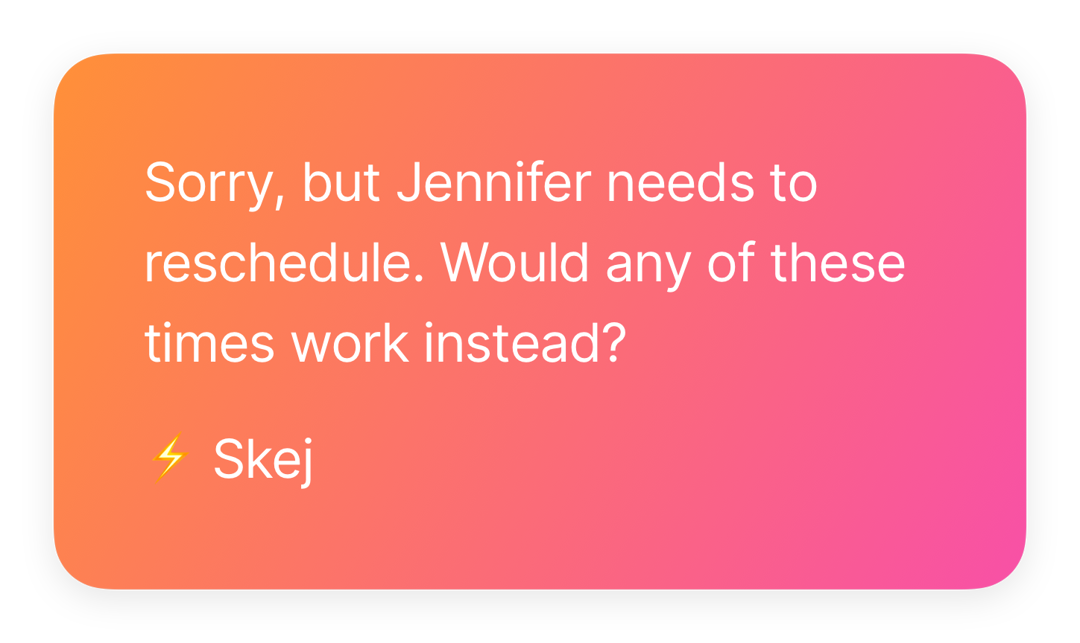
Key Features:
- 🧵 Intelligent Threading - Knows when to stay 1:1 vs. reply-all
- 🔒 Privacy Protection - Never shares private thread details
- 💬 Context Awareness - Reads the room like a human assistant
Microsoft Outlook Calendar Support
Connect Outlook Calendar and use Teams Video or Skype for meetings.
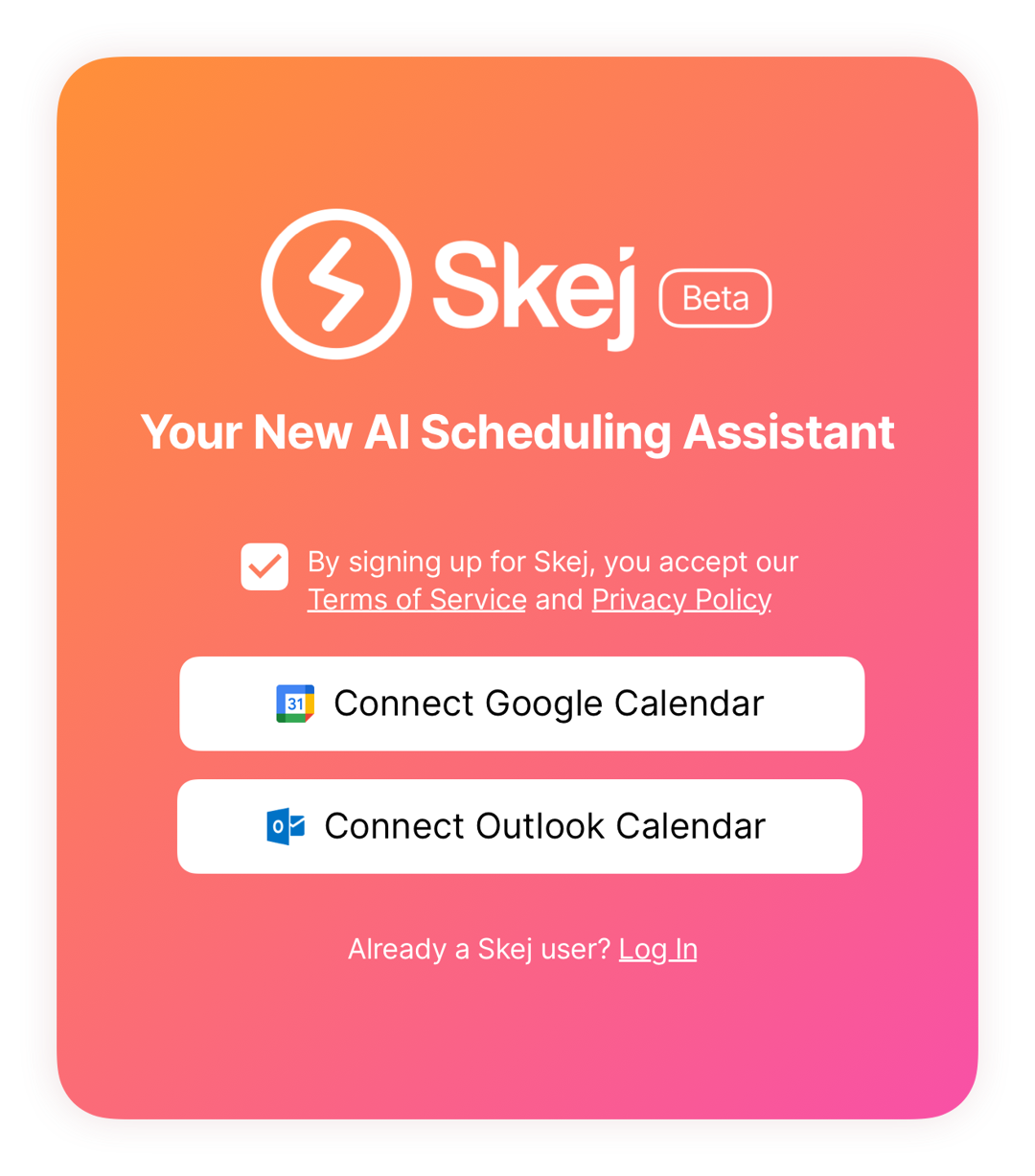
Key Features:
- 📅 Outlook Calendar integration
- 📹 Teams Video and Skype support
- 🔗 Multiple calendar connections in single account
Zoom Integration and Timezone Improvements
Generate Zoom links for meetings and better timezone handling for in-person events.

Key Features:
- 📹 Zoom Integration - Generate Zoom links automatically
- 🌍 Improved timezone handling for in-person meetings
- 🐛 Various bug fixes and improvements
Smart Event Types and Error Reduction
Better recognition of coffees, meals, and meeting types with fewer system errors.
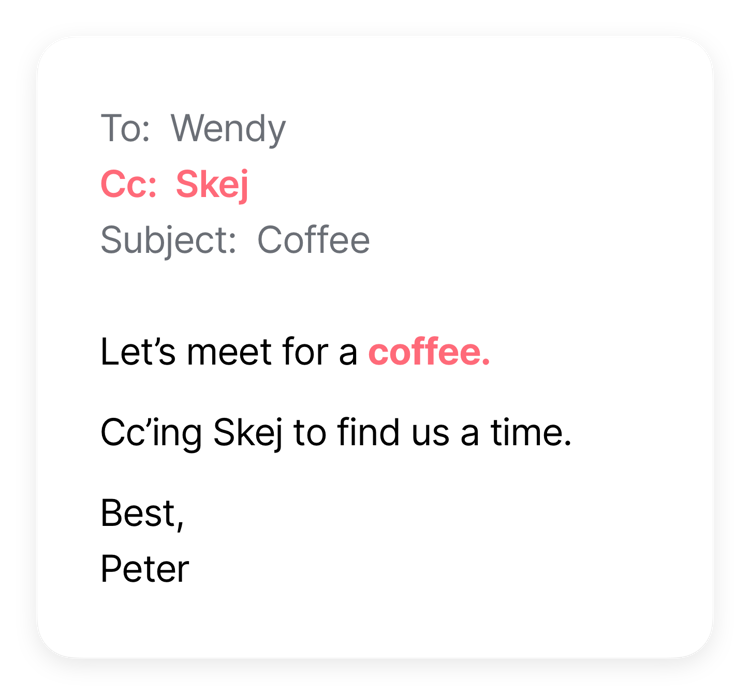
Key Features:
- ☕ Smart duration defaults - 1 hour for coffee/lunch, 2 hours for dinner
- 🏢 In-person meeting preferences and default locations
- 🧠 Better situational awareness and contextual responses
- 🐛 Significant error reduction and bug fixes
Availability Queries and Calendly Improvements
Ask Skej about availability and enhanced Calendly integration workflows.
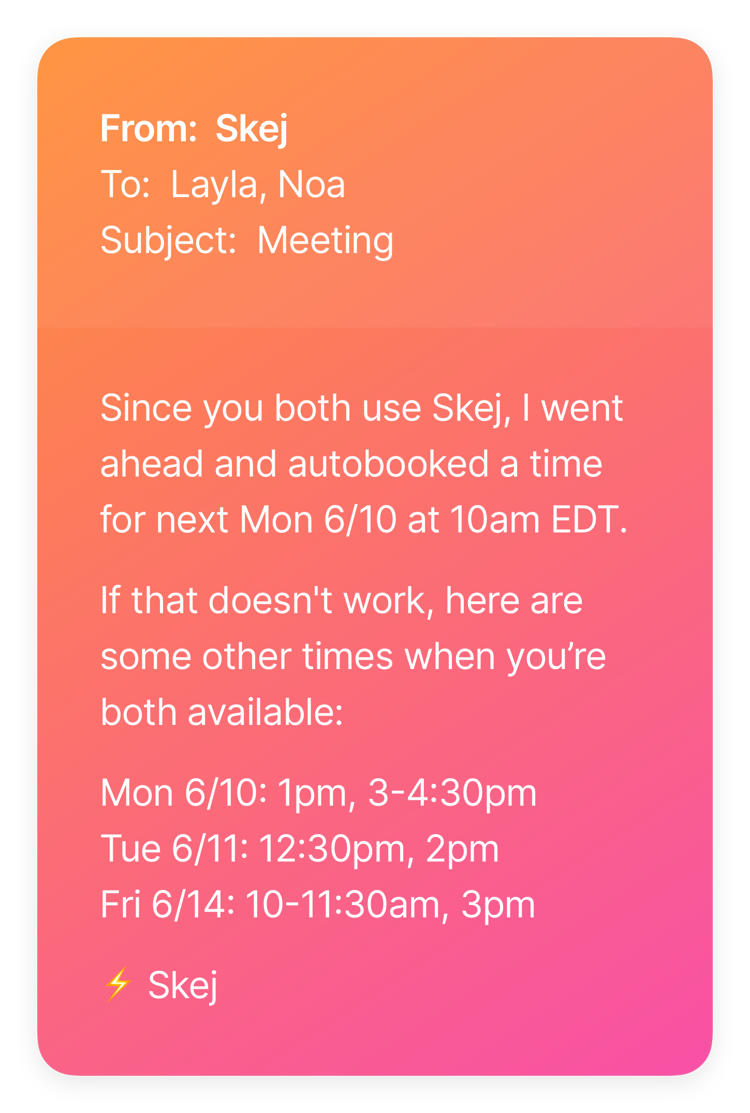
Key Features:
- ❓ 'When am I free?' availability queries
- 👥 'When are we all available?' for team scheduling
- 📅 Improved Calendly workflows with alternatives
- 🔄 2-way calendar sync for better accuracy
Bug Fixes and Stability
Various system improvements and bug fixes.
Key Features:
- 🐛 Multiple bug fixes and stability improvements
Skej Public Beta 1.0 Released
Skej is now available for all to try. This page will be an ongoing log of future updates and releases.
Key Features:
- 🚀 Public beta launch
- 📧 Email-based AI scheduling assistant
- 📅 Google Calendar integration
- 🤖 Natural language meeting coordination